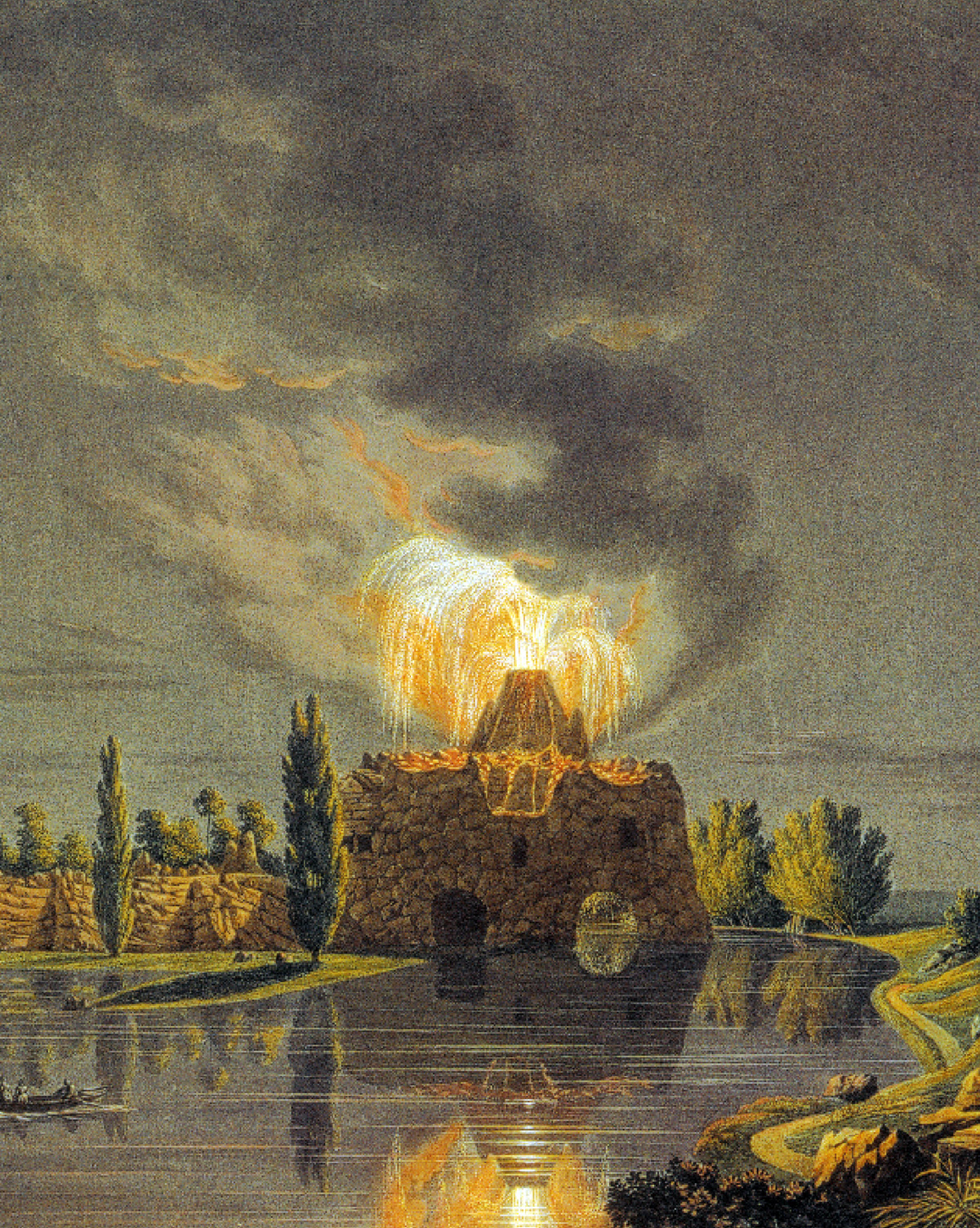A Note of Warning Concerning “Bashford’s Grotto”
Maiken Umbach weighs in on the Chadwicks’ “discovery”
Maiken Umbach
Like most small magazines, Cabinet cannot afford fact-checkers. This is not as disastrous as it might seem, given that our writers pride themselves on texts that do not propagate inaccuracies. Every so often, however, inconsistencies within a text make us turn to an outside scholar for independent evaluation. Such was the case with the text by Chadwick Dalton, reproduced below, which gave us enough cause for concern that we enlisted the help of Professor Maiken Umbach at the University of Manchester. When we forwarded her surprising response to Chadwick Dalton for comment, his associate, Torrent Chadwick, replied to Umbach directly; she kindly forwarded his preposterous letter to us. After much hand-wringing, we have decided to publish Dalton’s text prefaced by Umbach’s report and Chadwick’s “reply,” in part to shame the Chadwicks, but mainly because it proved impossible to find a replacement text before our deadline.
Dear Cabinet editors,
You approached me for an opinion on the recent “excavations” on Bashford Dean’s estate conducted by the Chadwicks. The New York Times, reporting on the documentation of this work exhibited at Wave Hill, proved shamefully ignorant of the very existence of Dean, curator at the Metropolitan Museum and eminent zoologist. Perhaps the reporter assumed a hoax because of the dubious moral credentials of the Chadwicks, and on this point, I have to agree. In trying to trick us into believing that Dean was the creator of a garden volcano and grotto at Wave Hill, the Chadwicks have not only insulted scholarship, but also the American nation.
The Chadwicks’ model volcano in truth represents a garden feature at Wörlitz, Germany, created around 1788 by Prince Franz, ruler of Anhalt-Dessau, political hasardeur, and self-made scientist. A leading Volcanist of his day, Franz wished to use his volcano not just to entertain guests, but to “prove” that order could emerge from volcanic chaos. He surrounded his structure with basalt, the volcanic material par excellence, which, by some fluke of nature, tends to form orderly, hexagonal columns.
The Chadwicks hijacked my interpretation of the Wörlitz volcano, which they cite, without attribution of course, from my book Federalism and Enlightenment in Germany, 1740–1806. And they have not even learned anything from their poaching. Otherwise, they would have realised that transplanting Volcanism to America went against everything that Franz’s contemporaries already knew. In 1830, Goethe, with a healthy suspicion of volcanic basalt and revolutions, wrote:
America, you’ve got it better / Than our old continent. Exult! / You have no decaying castles / And no basalt. / Your heart is not troubled, / In lively pursuits, / By useless old remembrance / And empty disputes / So use the present day with luck! / And when your child a poem writes, / Protect him, with his skill and pluck, / From tales of bandits, ghosts and knights.
It can only be hoped that Cabinet will exercise its fine judgement in protecting the American public from the devilish deceptions of the Chadwicks. For if we condone the transformation of the pastoral American landscape into one of black basalt, how are we to contain the other, political threat, captured in Goethe’s metaphor of the “decaying castles” as a marker of decadent empires? Heaven forbid that the American Empire ever become disorderly … We can only repeat with Goethe—America, protect your children from tales of bandits, ghosts, and knights!
Yours faithfully,
Maiken Umbach, University of Manchester
• • •
My Dear Maiken Umbach,
For the past two weeks, in the wake of this scathing and unwarranted critique of his work as a scholar, Chadwick Dalton will neither rise from his day bed nor accept the glasses of sherry I pass though the door slot. Apoplectic with semi-articulate rage, he has resembled nothing so much as a roiling volcano. His lava, shall we say, is a kind of blathering sound poem on variants of the rather singular name, Maiken Umbach. I must admit that I don’t know whether this makes him a Volcanist or a Neptunist (the distinction is still fuzzy to me), but I take off my top hat to any critic that can produce such an eruption in my disturbingly placid, even glacial, relative. Perhaps I could be of more close, personal service were we to meet in the not too distant future?
Gratefully yours,
Torrent Chadwick
For Chadwick Dalton's text, “Bashford's Grotto,” see here.
